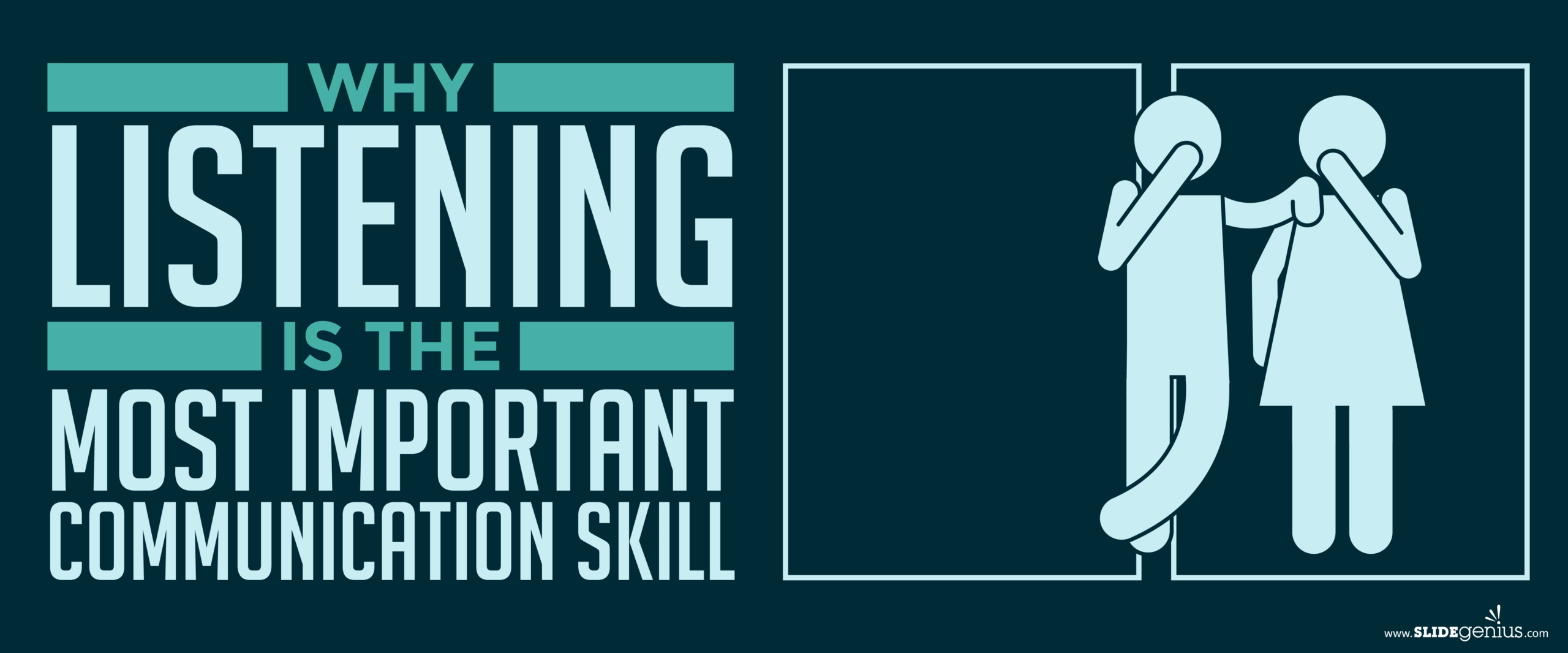
In the realm of communication, listening is often overlooked, but it is arguably the most crucial skill to master. While speaking clearly and effectively is important, active listening fosters better understanding, builds stronger relationships, and enhances overall communication. Whether you’re leading a meeting, giving a presentation, or engaging in a casual conversation, listening is essential to effective communication. Here’s why.
1. Builds Trust and Rapport
When people feel heard, they are more likely to trust and respect you. Listening actively—without interrupting or jumping to conclusions—demonstrates that you value the other person’s thoughts and opinions.Why It’s Important:
- Encourages Openness: People are more likely to share their honest thoughts and feelings when they feel genuinely listened to.
- Fosters Stronger Relationships: Listening helps build rapport, which is crucial in both personal and professional relationships.
How to Do It:
- Focus fully on the speaker, making eye contact and giving them your undivided attention.
- Use verbal and nonverbal cues (like nodding or brief affirmations) to show that you’re engaged.
2. Improves Understanding
Listening carefully allows you to fully understand the speaker’s message. Without active listening, you may miss key details, misinterpret the speaker’s intent, or make incorrect assumptions.Why It’s Important:
- Prevents Misunderstandings: By truly listening, you can avoid confusion and ensure that you understand the message as intended.
- Leads to Informed Responses: Listening helps you respond thoughtfully and accurately, rather than giving off-the-cuff remarks.
How to Do It:
- Summarize or paraphrase what the speaker has said to ensure you’ve understood their points correctly.
- Ask clarifying questions if something is unclear.
3. Enhances Problem-Solving
In collaborative environments, effective listening is key to identifying issues and finding solutions. When you actively listen to all perspectives, you gain a broader understanding of the problem, which helps you come up with more effective solutions.Why It’s Important:
- Gathers All Perspectives: Listening to various viewpoints helps you consider all aspects of a situation before making decisions.
- Fosters Creative Solutions: Hearing others out allows for collaborative brainstorming, leading to more innovative problem-solving.
How to Do It:
- Encourage others to voice their opinions and ideas.
- Withhold judgment or counterarguments until you’ve fully understood everyone’s perspective.
4. Encourages Respectful Dialogue
Active listening can de-escalate tensions and create a more respectful conversation. By listening rather than dominating the conversation, you create an environment where everyone feels comfortable sharing their views.Why It’s Important:
- Decreases Conflict: Listening can help defuse misunderstandings or disagreements before they escalate.
- Promotes Mutual Respect: Respect is cultivated when people feel that their views are acknowledged and valued.
How to Do It:
- Practice patience by letting the speaker finish before responding.
- Avoid interrupting, even if you disagree with what’s being said.
5. Strengthens Leadership Abilities
Strong leaders are often those who listen the best. By listening to your team’s concerns, ideas, and feedback, you demonstrate empathy and foster an environment of collaboration and mutual respect.Why It’s Important:
- Builds Team Morale: Team members feel valued and respected when their input is genuinely considered by leadership.
- Improves Decision-Making: Leaders who listen gain valuable insights that can inform better decisions.
How to Do It:
- In meetings, give everyone an opportunity to speak and ensure you listen attentively to their input.
- Make it a habit to seek feedback regularly and act on the insights you gather.
6. Boosts Emotional Intelligence
Listening is a key component of emotional intelligence (EQ). It helps you understand not only the words being spoken but also the emotions and underlying needs of the speaker. High EQ is essential for successful communication, conflict resolution, and leadership.Why It’s Important:
- Enhances Empathy: By listening closely, you can better understand how the other person is feeling, which strengthens your ability to empathize.
- Improves Interpersonal Relationships: People with high EQ are more effective in their interactions because they can connect on both intellectual and emotional levels.
How to Do It:
- Pay attention to the speaker’s tone, body language, and nonverbal cues to fully understand their message.
- Respond with empathy by acknowledging their emotions and validating their feelings.
Final Thoughts
Listening is the cornerstone of effective communication. Whether in a professional setting or personal relationships, listening improves understanding, builds trust, and strengthens connections. By practicing active listening, you can enhance your communication skills and become a more empathetic, effective, and respected communicator.